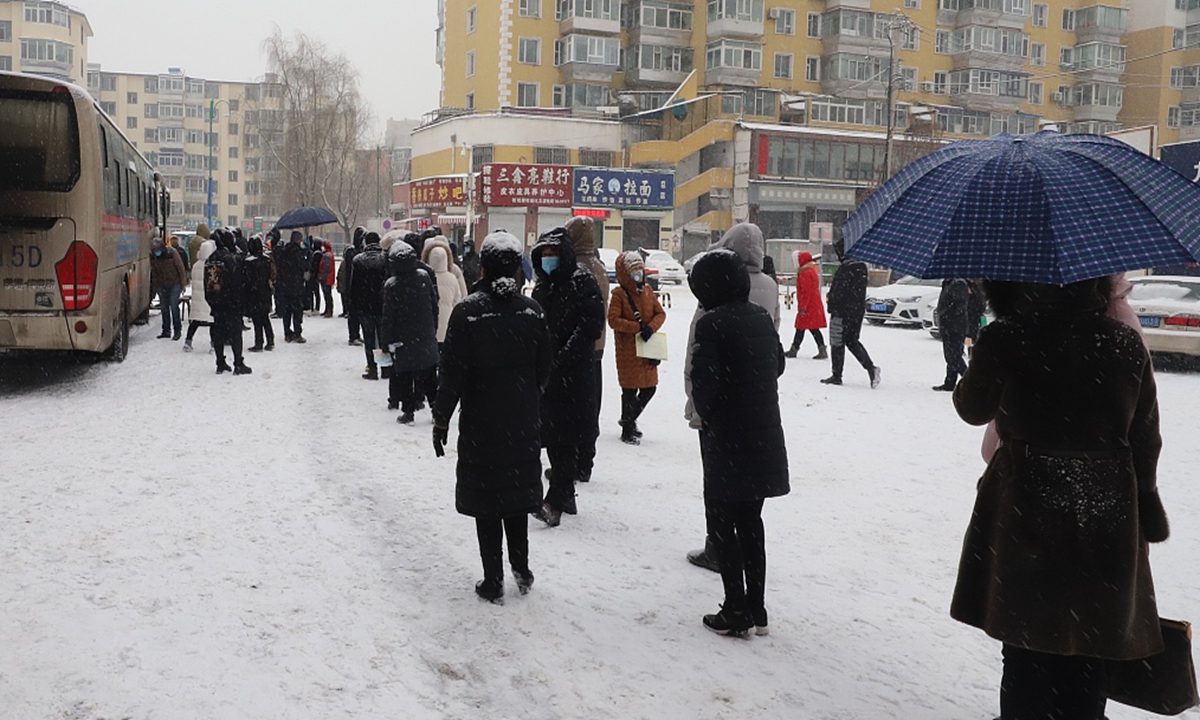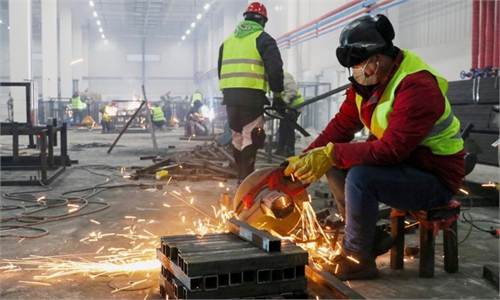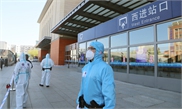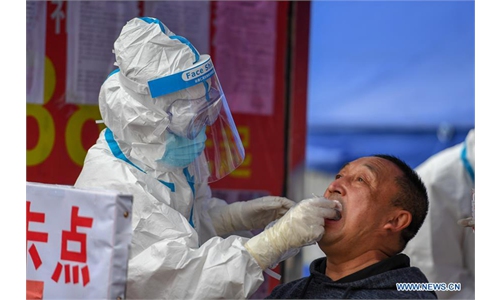
Residents line up to take nucleic acid tests at a designated testing site inside a community in Tonghua, Northeast China's Jilin Province on January 16. Photo: VCG
Facing an uproar of online criticism and complaints, a deputy mayor of Tonghua, Northeast China's Jilin Province, apologized on Sunday for slow deliveries of daily necessities to residents, after the city placed its entire 500,000-plus population under home quarantine amid rising coronavirus infections.Authorities of Tonghua also vowed to set up volunteer teams to deal with the shortage of personnel in delivering daily necessities to residents, following online criticism and complaints.
The city sealed off all communities on Wednesday amid a surge in COVID-19 infections. Local residents are complaining online about the lack of food caused by late deliveries during the lockdown. Experts urged the local government to strengthen its public health crisis handling mechanism and play a bigger role in coordination.
The Global Times learned that the responsibility of supplying daily necessities fell on the shoulders of local communities after the lockdown, but the shortage of workers meant that timely food delivery services could not be guaranteed for every household.
Under pressure from the online public outcry, Deputy Mayor Jiang Haiyan issued an apology on behalf of the city's Party committee and the government of Tonghua at a Sunday press conference for the inconvenience caused by inadequate distribution of daily necessities for residents.
She said the city has mobilized more than 800 volunteers to distribute food and will continue to boost the delivery capacity to meet demand.
Prior to the apology, the Tonghua government released a notice on Saturday guaranteeing the supply of daily necessities, and it said that Tonghua had established volunteer service teams to help deliver daily necessities to local residents.
During the quarantine period, residents will have to purchase online daily necessities such as food and medicine, which volunteers will then deliver to communities. For the elderly, who may have difficulties using smart phones, community service personnel will help them make online orders, the notice says.
Jilin Province reported 12 confirmed and 29 asymptomatic cases on Sunday, bringing the total number of confirmed cases in the province to 206.
Tonghua is the worst-hit city in Jilin, with a total of 240 infections as of press time, including 140 confirmed and 100 asymptomatic cases.
Tonghua previously reported a super-spreading event where a COVID-19 patient held four promotional events in the cities of Gongzhuling and Tonghua promoting cooking oil, media reports said.
The Global Times on Sunday learned from online takeout platform Eleme in Tonghua that the main reason for the shortage of daily necessities is the vast amount of online orders.
"Imagine the work load when ordering online is the only way to purchase food. There are enough deliverymen, but shops just cannot process such large amounts of orders immediately, resulting in delivery delays," said a manager of Eleme in Tonghua surnamed Li.
The Eleme platform has organized 300 deliverymen to help residents get daily necessities. They work from 7am until 6pm.
A community worker from Guangming Street of Tonghua's Dongchang district told the Global Times on Sunday that there are only 23 frontline workers to coordinate the delivery of materials from 20 storage centers to more than 7,000 households in the community.
"The phone is ringing constantly. Almost all the anti-epidemic personnel have joined in delivery work, including volunteers, property management staff and cleaning workers, but it is still hard to meet the demand of the residents, especially for those who live in old-style buildings that don't have elevators," said the worker, who requested anonymity.
Many locals reached by the Global Times said they understand how busy the local communities are, but the government should first address the lack of food for those in urgent need.
Since the beginning of the epidemic in multiple cities in Northeast China in December 2020, guaranteeing daily supplies has been a tough mission for local governments, and it requires local governments to establish a more efficient channel to communicate with residents, while local residents should also have more understanding, observers noted.
Some local officials in Tonghua believed that the outbreak would not be too severe, so they were unprepared for the sudden move to sealed-off management to curb the virus' spread, Wang Hongwei, a professor at Renmin University of China's School of Public Administration and Policy, told the Global Times on Sunday.
Even though there are many social workers and volunteers who are willing to help, authorities should have played a bigger role in guiding and coordinating them, Wang said.
"The central government has been calling for enhancing China's public health crisis handling mechanism, and local authorities should reflect on their response and improve governance," Wang said.
A commentary by the Xinhua News Agency urged local governments to consider whether their stored resources and administrative capabilities can deal with sudden seal-offs before announcing such moves.





